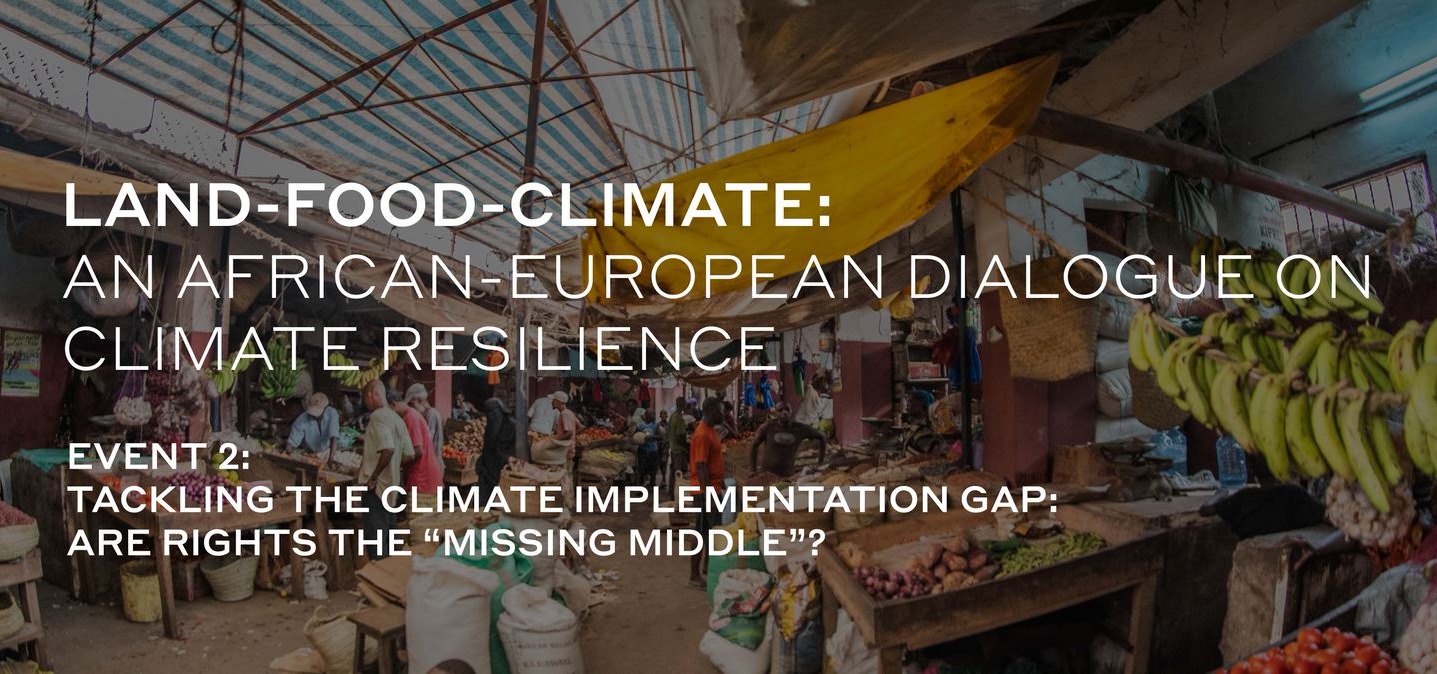TMG and Robert Bosch Stiftung host second event in the Land-Food-Climate series
The Earth Negotiations Bulletin has published a report on the TMG and Robert Bosch Stiftung-hosted discussion on tackling the climate implementation gap

Tackling the Climate Implementation Gap: Are Rights the "Missing Middle"?, the second event in the Land-Food-Climate series, took place on 19 October at the Robert Bosch Stiftung (RBS) in Berlin, co-organised by TMG and RBS, with the Future Africa programme of the University of Pretoria, and African Research Universities Alliance Centre of Excellence in Sustainable Food Systems. Bringing together speakers from the human rights, climate, development cooperation, and research sectors, it explored how international partnerships can build enabling environments for more inclusive climate governance at the national and sub-national levels in Africa. Images and video clips of event highlights are presented here.
Building on the concept of the 'missing middle' - the fact that national governments often lack the capacity to implement activities at the local level, while the scaling-up of local-level activities is in turn hindered by the lack of enabling environments - the event focused on the potential of a rights-based approach to secure just and equitable climate governance, and the role that African-European partnerships could play in making this happen.
The first panel, which saw contributions from Cheikh Mbow, Director, Future Africa, University of Pretoria; Sanelisiwe Nyaba, Food Agency Cape Town; Faith Alubbe, Chief Executive Officer, Kenya Land Alliance; and Corinna Enders, Managing Director, Zukunft-Umwelt-Gesellschaft, focused primarily on food systems transformation, as well as on the need for context-specific interventions that respond to the needs of local communities. Food, several contributors noted, is cultural and communal and therefore programmes to address food insecurity must be socially-embedded, employing an intersectional approach.
In the second panel, featuring Youba Sokona, South Centre, and Vice-Chair, IPCC; Susan Chomba, World Resources Institute; and Antoine Oger, Institute for European Environmental Policy, speakers discussed the ways in which African-European partnerships need to change in order to support the realisation of rights, with a particular emphasis on the need for bottom-up approaches that provide space for local communities to be the drivers of climate adaptation measures. A similar focus on the knowledge, capabilities, and potential power of even the most marginalised people was a core theme of the presentation by Kumi Naidoo, Founding Chair, Africans Rising for Justice, Peace, and Dignity, which preceded a final roundtable discussion.
Key recommendations emerging from the discussions included:
breaking the silos between the agriculture and climate change communities;
adopting systemic responses to tackle the complex, interlocking challenges of food systems transformation and climate change;
drastically reducing greenhouse gas emissions in the Global North;
supporting the implementation of locally-led solutions, rather than imposing one-size-fits-all approaches;
bridging the “missing middle” between the national and local levels through capacity building and enabling environments; and
using context-specific methods to foster meaningful stakeholder engagement, including by being attentive to questions of language and lite racy.
A detailed report on the event from the Earth Negotiations Bulletin of the International Institute for Sustainable Development can be read in full here.
